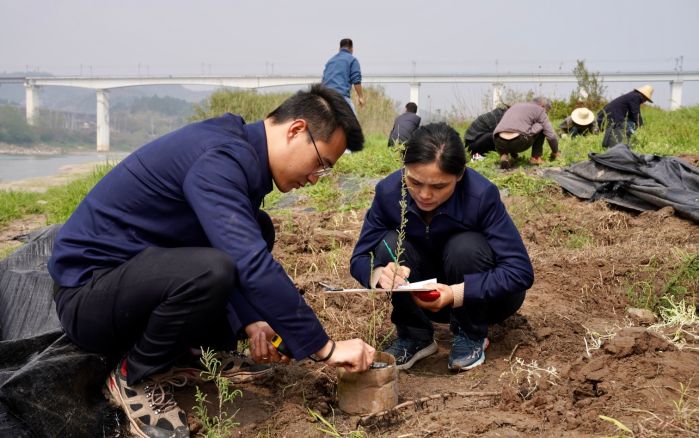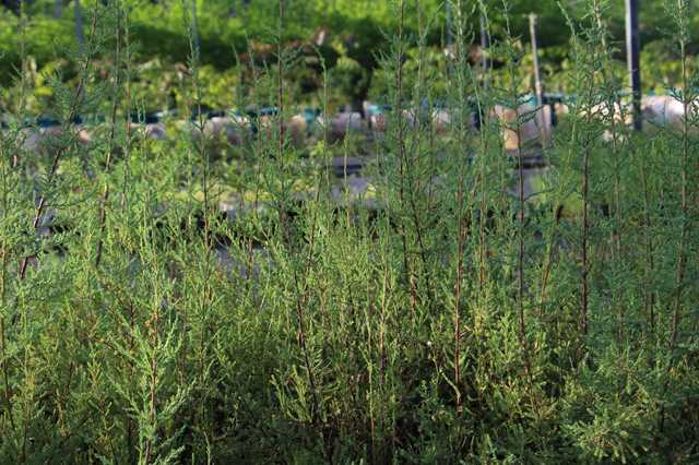from:China Three Gorges Corporationdate:2022-03-21

CTG transplanted 3,000 branches of artificially bred myricaria laxiflora into a small island in the Yichang section of the Yangtze River on March 18.
The transplanting was conducted by CTG’s subsidiary Yangtze River Rare Plant Research Institute of Yangtze River Eco-Environmental Engineering Research Center, which bred the plants, in partnership with the management office of Three Gorges Botanical Garden.
, which were bred by the institute,
Myricaria laxiflora, endemic to the Three Gorges Reservoir Region in China, is only found in Sichuan, Chongqing and Hubei provinces across the Yangtze River Basin. It is a typical amphibious plant that remains dormant amid flooding in summer and starts to grow after the floods recedes in winter. It is of great significance for the study of plant evolution, plant genetics and variation, and the relationship between plants and the environment. Therefore, the endangered species is classified as a second-class protected wild plant in China.

"The returning of rare and endangered plants to nature is a systematic project. For instance, it involves field domestication studies and exploration on the flowering and fruiting conditions of returned plants. Meanwhile, studies on the living conditions and diversity of their native habitats should be conducted to protect the integrity of the ecosystem, and ensure the natural growth and reproduction of returned plants. In short, the project is not just about bringing them back to the nature. It's also about enabling them to adapt to their environment and thrive," said Qiu Liwen, a researcher at Yangtze River Rare Plant Research Institute.
There has been a total of over 2,9000 rare and unique plants of over 1,300 species ex-situ conserved by the institute over the past 20 years.
Aside from artificial cultivation and tissue culture, Yangtze River Rare Plant Research Institute focuses on the transplanting of rare and unique plants. It has transplanted over 50,000 rare and endangered plants of over 30 species, including China's first-class protected wild plants like adiantum reniforme and taxus chinensis. While bringing them to their native habitats, it has expanded their populations and ensured the natural reproduction of seedlings in the wild.
Tel:+86-25-84152563
Fax:+86-25-52146294
Email:export@hbtianrui.com
Address:Head Office: No.8 Chuangye Avenue, Economic Development Zone, Tianmen City, Hubei Province, China (Zip Code: 431700) Nanjing Office: Room 201-301, Building K10,15 Wanshou Road,Nanjing Area, China (Jiangsu) Pilot Free Trade Zone,Jiangsu Province,China (Zip Code:211899)
